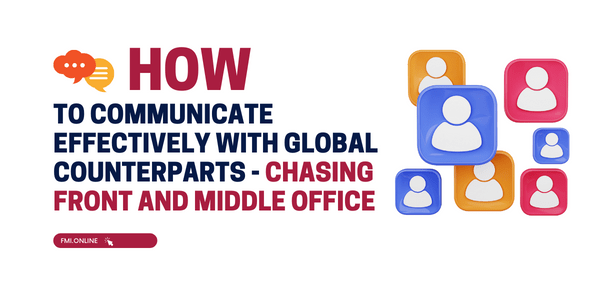You will often hear the same advice when asking an investment banker what it takes to succeed in the industry: being skilled at valuation, knowledge of Excel, technical skills, ability to work in teams, critical thinking, and time management. However, the one essential skill which is not always given credit is communication.
One of the crucial aspects of investment banking is the ability to cater to clients, superiors and corporates. Presenting an idea requires comprehensive communication and presentation skills, which may include spreadsheets, documents, and slideshows. In spite of that, you will hardly ever find someone explaining precisely how to “communicate effectively” when you’re in the finance industry. Let’s help you achieve that:
1. In-depth knowledge of the product or the deal
In order to communicate effectively, one must understand what the product or the deal is. This does not mean that you should have an expertise in all areas, however, a basic understanding of the structure, terms involved, and how the deal is executed is essential. This not only helps the investment banker communicate all the benefits of the particular service, such as raising funds through IPO or merging with another company but also allows the IB professional to provide solutions for the potential problems or dilemmas that the client might be confronted with.
2. Working across timezones
It is often said that investment banking is a 24/5 job, as professionals are required to interact with stakeholders across the globe, including peers from the same organisation but different geography. Therefore, in order to ensure effective communication, an IB professional must be flexible to work in different timezones. This is especially true for large global investment banks such as Goldman Sachs and JP Morgan Chase. For instance, the head of M&A for the Asia Pacific region of a particular global bank must work with his/her counterparts from different parts of Asia. This also require a slight understanding of the cultural norms and jargon.
3. People’s skills
A good relationship between the front and the middle office always pays off. Both these offices act as two different components which must work together in order to sell a product or close a deal. The front office is client facing and takes care of understanding the client’s requirements and gaining their confidence in the product’s offering. The middle office, on the other hand, takes care of the execution and makes sure that it delivers what is being promised to the client. In order for this arrangement to work smoothly and ensure that there is effective communication between the two departments, they must have a healthy association, which is boosted by people’s skills.
4. Choosing the right people
Not only is it important to choose what you convey, but it is equally important to choose whom you convey the message to. Communication is most effective when you begin with the intended person or department. If you are facing problems with the trading interface, you must convey that to the tech department, instead of first going to the HR and expecting them to loop the tech department in. However, at the same time, it is vital to respect the hierarchy in the organisation, so you may want to keep your superiors informed about the whole situation, if required.
5. Keep it Short!
The information that you communicate must be concise. You must strike a balance between giving a lot of detail, which might be redundant, and very little detail. The best way to go about this is to prepare and start with a “short version” of your explanations, and give the longer version, with all the details, if the person asks for it.
Technical skills, such as valuation, Excel, making presentations and spreadsheets are all important but there is no substitute for effective communication. An investment banking professional or someone who is aspiring to be in the field of investment banking must understand the business and the services that the bank offers to communicate effectively. One must always ask if he/she is the right person to talk about this? Am I using the right medium to communicate with them? Am I giving too much information or is it all required? Initially, this may seem like a lot, but it becomes natural over time. Moreover, this becomes even more essential when you are working in the front office.










 60+ hours
60+ hours 9 courses
9 courses



